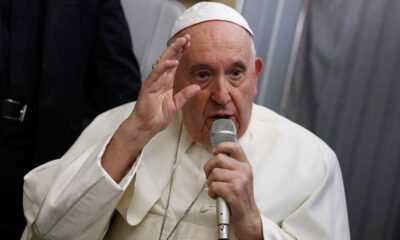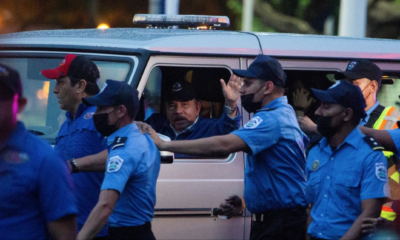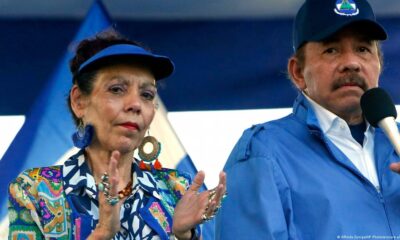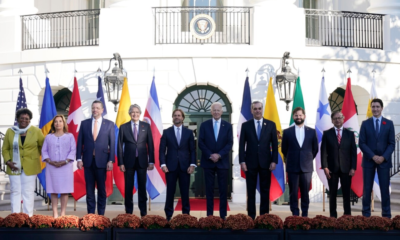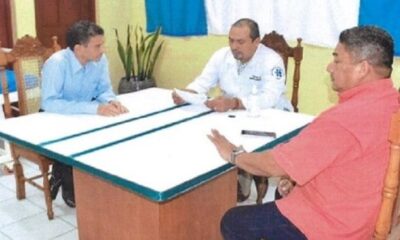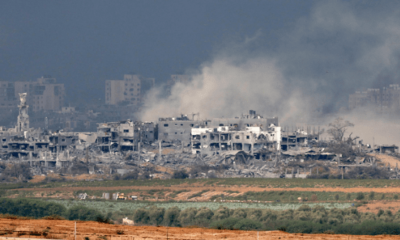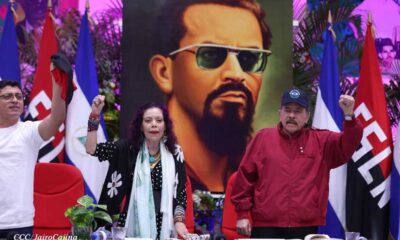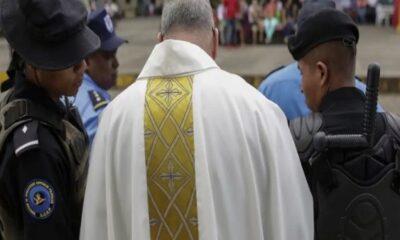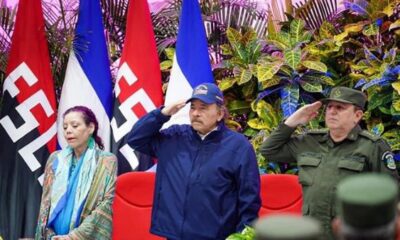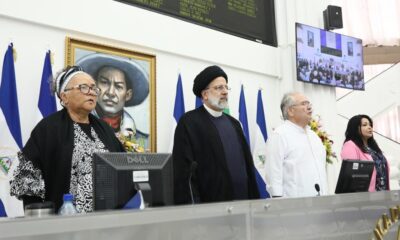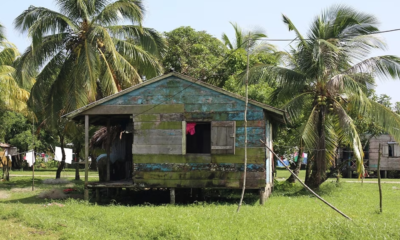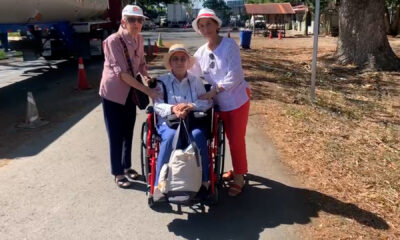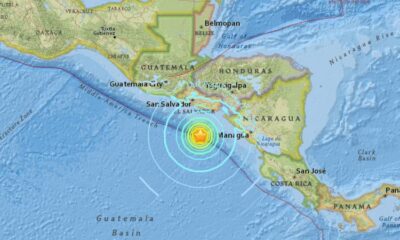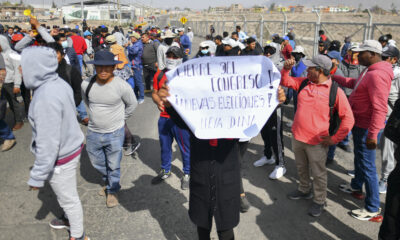Central America
Nicaraguan bishop critical of Ortega ordered to trial for ‘conspiracy’
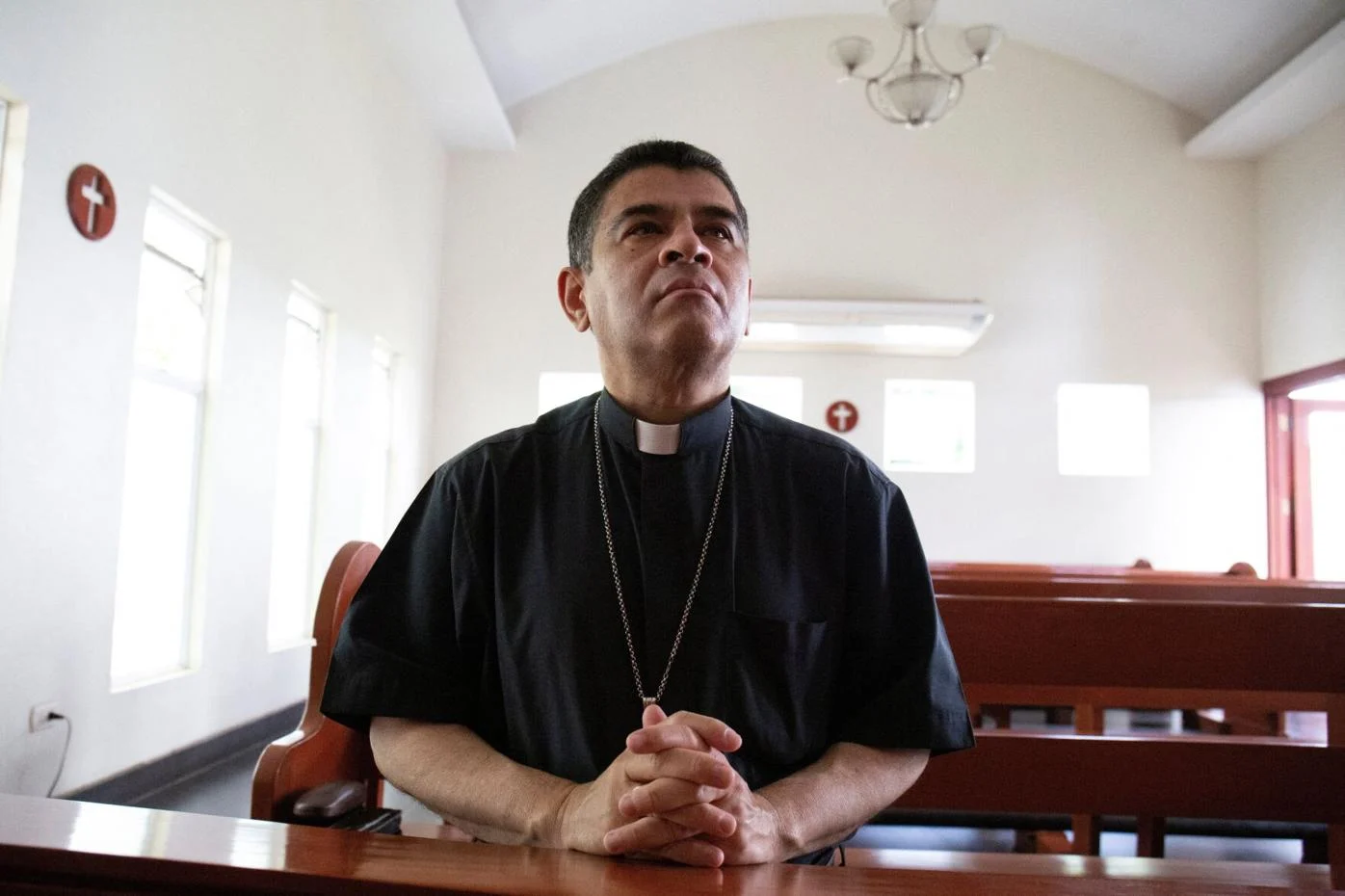
January 11 | By AFP |
A Nicaraguan bishop who has been sharply critical of President Daniel Ortega’s government was ordered Tuesday to stand trial for charges of conspiracy and spreading false news.
Rolando Alvarez, a 56-year-old bishop from the northern Matagalpa department, has been held under house arrest since August in the capital Managua.
During the pre-trial hearing Tuesday, “evidence was admitted and the case was sent to trial,” the Managua court said in a press release, without specifying a date for the trial.
Alvarez was also ordered to remain under house arrest.
Alvarez was taken into custody in late August and moved to the Central American country’s capital.
After his arrest, police said the bishop, who is a member of the Nicaraguan Episcopal Conference, was being investigated for trying to “destabilize the country.”
He was not charged until December, with prosecutors alleging Alvarez had committed “crimes of conspiracy to undermine national integrity and propagation of false news through information and communication technologies to the detriment of the Nicaraguan state and society.”
Along with Alvarez, at least six other clergy members were also detained and remain in a Managua jail without any official charges against them.
The charges against Alvarez come amid tense relations between the Catholic Church and the Ortega government that began in 2018, when the country was rocked by huge anti-government protests.
The president linked the demonstrations to a failed coup he said was being pushed by the opposition with the support of Washington and accused bishops of being complicit in the alleged plot.
Ortega’s government last year expelled apostolic nuncio Waldemar Sommertag, outlawed the Missionaries of Charity Association, of the order of Mother Teresa of Calcutta, and closed several Catholic media, including the television channel of the Episcopal Conference.
Ortega, a 77-year-old former guerrilla, has governed Nicaragua since 2007, winning three successive reelections.
The last vote took place in November 2021 with Ortega’s main rivals in jail alongside dozens of other government opponents and critics.
In December, UN rights chief Volker Turk said that there was a “systematized effort to stifle opposition and dissent” in Nicaragua, while the White House in August condemned a “dramatic deterioration” of human rights in the country.
Central America
OAS urges swift recount in Honduras as election results remain uncertain

The Organization of American States (OAS) electoral observation mission in Honduras reported findings of a “lack of expertise” and “delays” in the vote-counting process, but stated that it found no indications that would cast doubt on the results of the November 30 general elections, according to a report presented to the organization’s Permanent Council.
The delay by electoral authorities in releasing the final results “is not justifiable,” said former Paraguayan foreign minister Eladio Loizaga while reading the report.
Honduras marked two weeks on Monday without knowing who its next president will be, following elections in which conservative candidate Nasry Asfura, backed by U.S. President Donald Trump, holds a lead of less than two percentage points over fellow right-wing contender Salvador Nasralla.
Accusations of fraud have dominated Honduras’ political landscape since polls closed on the last Sunday of November.
In addition to Nasralla’s complaints, the current government led by leftist President Xiomara Castro has described Trump’s support for Asfura as an “electoral coup.”
The U.S. president has warned of “serious consequences” if the current results were to change and strip Asfura, a 67-year-old businessman, of his lead.
Although more than 99 percent of the votes have been counted, nearly 2,800 tally sheets contain “inconsistencies” and must be reviewed through a special recount, the National Electoral Council (CNE) said.
“The Mission urgently calls on the electoral authorities to immediately begin the special recount and to pursue all possible avenues to obtain official results as quickly as possible. The current delay in processing and publishing the results is not justifiable,” the head of the OAS mission told members of the organization.
Central America
Panama seizes over three tons of drugs hidden in Caribbean port container
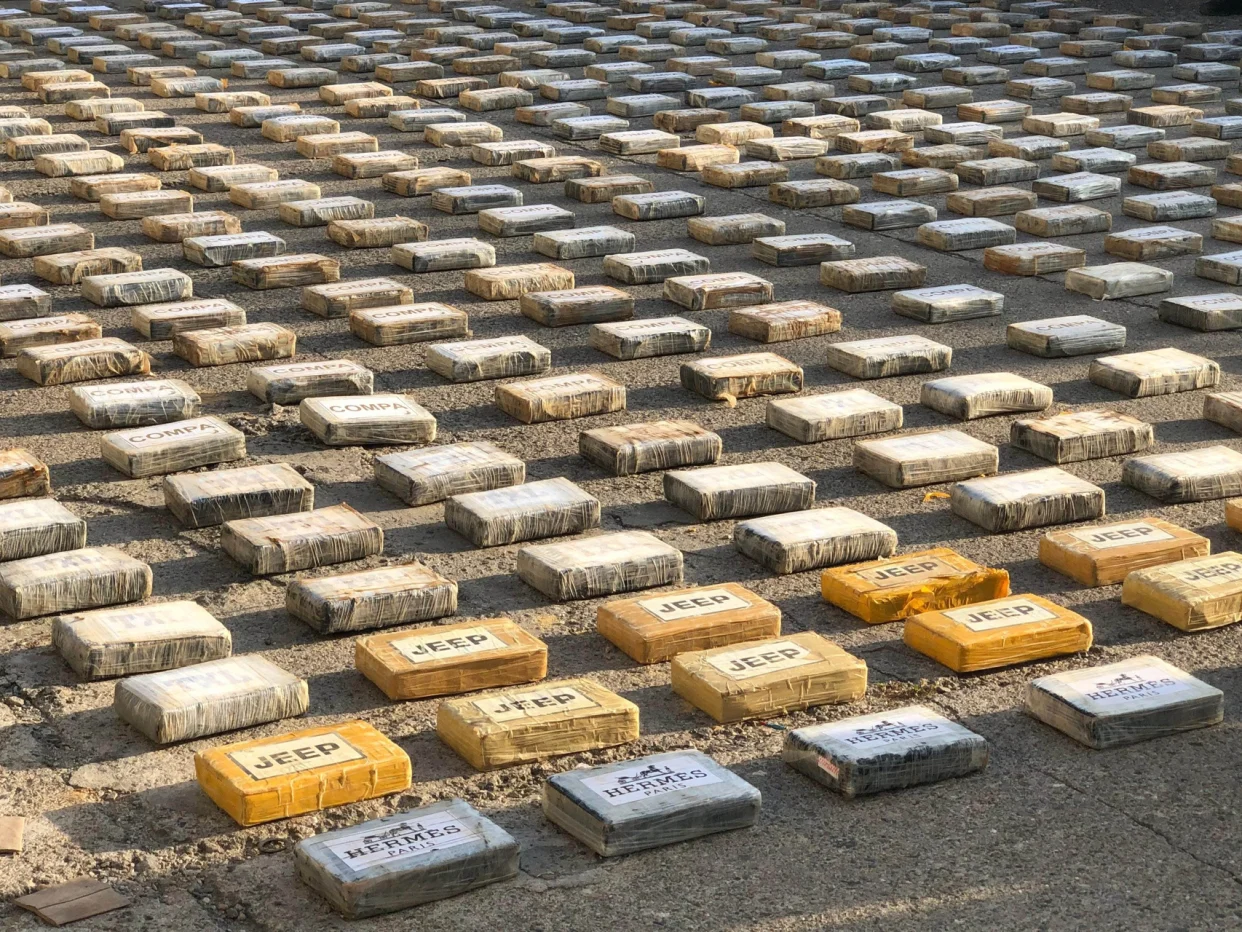
Panama’s National Air and Naval Service (Senan) reported on Sunday the seizure of more than three metric tons of drugs that were concealed inside a shipping container at a port terminal on the country’s Caribbean coast.
According to a statement posted on X, Panamanian aeronaval authorities confirmed the confiscation of 3,205 packages of a suspected illicit substance hidden inside a container in transit through Panama, at a port facility in the Caribbean province of Colón. Each package typically weighs approximately one kilogram.
Earlier this week, Senan agents also seized an additional 2.2 metric tons of drugs and arrested five individuals, including a Colombian national, in separate operations linked to drug trafficking activities.
Panama serves as a major transit route for drugs produced in South America and destined mainly for the United States — the world’s largest consumer of cocaine — and Europe. According to official figures, Panamanian authorities seized approximately 80 metric tons of illicit substances in 2024.
Central America
Honduras election crisis deepens as CNE president denounces intimidation attempts
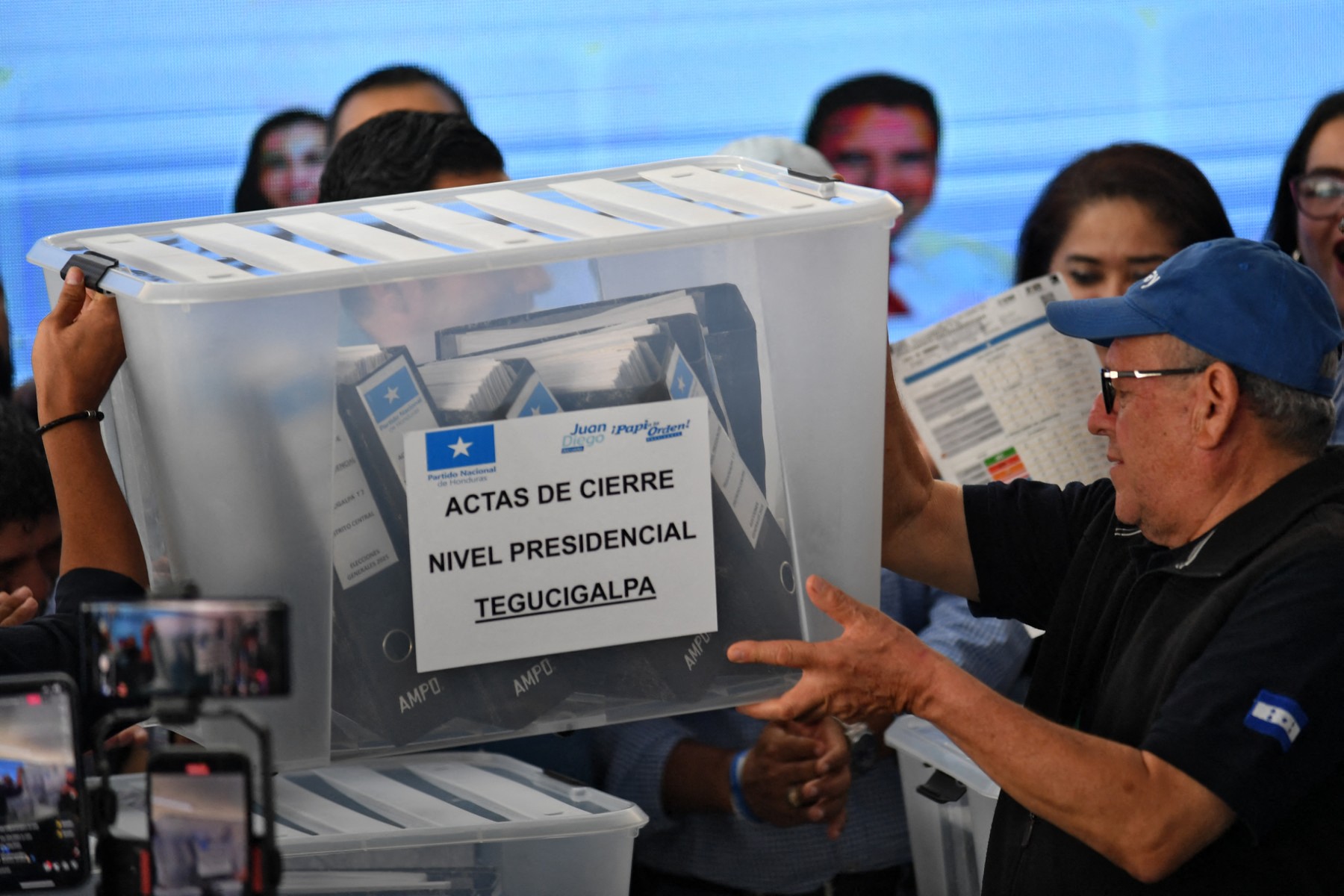
Tegucigalpa remains engulfed in a deep post-electoral crisis, marked by the absence of final results from the general elections held on November 30. On Thursday, the presiding counselor of the National Electoral Council (CNE), Ana Paola Hall, publicly denounced acts of intimidation that she warned could jeopardize the final phase of the process.
Following a meeting with the G-16+ diplomatic corps, Hall expressed concern over two specific incidents: a call by former president Manuel Zelaya summoning supporters of the Libre Party to gather outside the INFOP facilities—where electoral records and materials are being safeguarded—and a statement issued by the Permanent Commission of Congress accusing her and counselor Cossette López of alleged electoral crimes, an action she described as “baseless and outside their jurisdiction.”
Hall reaffirmed her institutional commitment and warned that she will not allow interference in the announcement of the results. “Honduras comes first,” she emphasized, underscoring her intention to defend the electoral process as a cornerstone of democracy.
Meanwhile, the preliminary results place Nasry ‘Tito’ Asfura, candidate of the National Party, in the lead with 40.52%of the vote, followed closely by Salvador Nasralla of the Liberal Party, with 39.48%. The ruling party’s candidate, Rixi Moncada of Libre, is in third place with 19.29%. Around 0.6% of the tally sheets—many of them showing inconsistencies—have yet to be reviewed.
The Organization of American States (OAS) called an extraordinary session of its Permanent Council to analyze the situation, while civil organizations and governments such as Paraguay’s urged respect for the popular will.
Honduran President Xiomara Castro accused the United States, and specifically former president Donald Trump, of obstructing the process, while also denouncing threats from gangs against voters aligned with her party.
-

 International4 days ago
International4 days agoWashington declares State of Emergency as atmospheric river brings severe flooding
-

 International4 days ago
International4 days agoU.S. to require five-year social media history from tourists under Visa Waiver Program
-

 International3 days ago
International3 days agoCuba battles out-of-control dengue and chikungunya epidemic as death toll rises to 44
-

 Central America3 days ago
Central America3 days agoHonduras election crisis deepens as CNE president denounces intimidation attempts
-

 Central America4 days ago
Central America4 days agoOAS and EU urge honduran political actors to respect vote results and avoid unrest
-

 International3 days ago
International3 days agoColombia says it would not reject Maduro asylum request as regional tensions escalate
-

 International2 days ago
International2 days agoSeveral people shot in attack on Brown University campus
-

 International3 days ago
International3 days agoEcuador on track for record violence as homicides hit highest level in Latin America again
-

 International4 days ago
International4 days agoSix ecuadorian soldiers jailed pending trial for alleged extrajudicial execution
-

 International2 days ago
International2 days agoU.S. and Mexico Reach Deal to Address Water Deficit Under 1944 Treaty
-

 Central America12 hours ago
Central America12 hours agoPanama seizes over three tons of drugs hidden in Caribbean port container
-

 International6 minutes ago
International6 minutes agoPolice investigate deaths of Rob Reiner and wife as apparent homicide
-

 Central America9 minutes ago
Central America9 minutes agoOAS urges swift recount in Honduras as election results remain uncertain





























